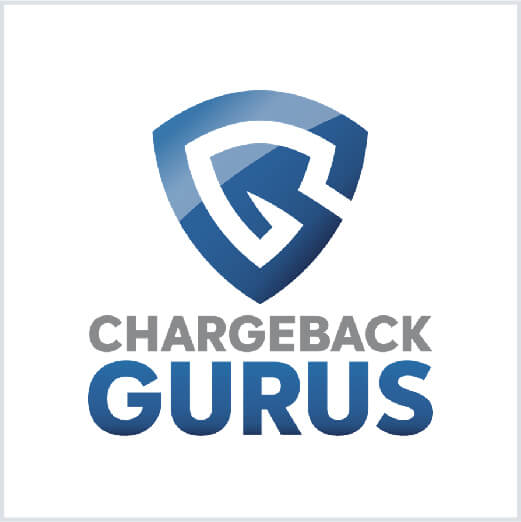How to Choose the Best Option Among All the Chargeback Companies on the Market
Chargeback management isn’t necessarily something that most merchants think about. At least, not until they need help, that is.
When chargeback rates start surging, and keeping disputes in check starts to occupy too much time and manpower, you might start to wonder if chargeback companies offer a better solution than in-house management.
But, beyond what they are and what they do, how do you decide which company is right for your business? What questions should you ask? And, most importantly, who do you ask?
Recommended reading
- Chargeback Automation | Better Dispute Management
- Revenue Recovery: Tips & Best Practices to Reclaim Money
- What’s an “Acceptable” Chargeback Rate? Why Does it Matter?
- Chargeback Accounting: How it Works | Tips & Best Practices
- Chargeback Reduction Plan: a Guide to Develop Your Strategy
- Chargeback Reports | Use Past Data to Stop Future Disputes
What is a Chargeback Company?
- Chargeback Company
Chargeback services providers — commonly known as chargeback management companies or simply chargeback companies — provide specialized third-party assistance in the area of chargebacks.
[noun]/chaarj • bak • kuhm • puh • nee/Some chargeback companies offer limited services. For instance, helping you reduce the number of chargebacks filed through merchant error mitigation, or by challenging illegitimate chargebacks. Other providers do both of these things, and may provide additional services as well.
Some offer basic chargeback alert services to notify customers about chargebacks, or automated fraud scoring to detect criminal activity. Others offer representment and remediation services to recover disputed transactions.
Chargeback companies may also offer differing levels of management, depending on your needs. Some provide basic consulting, while others offer full, end-to-end service to take chargebacks off your plate completely.
When is a Chargeback Company Necessary?
Again, it depends on your situation.
First, you can’t fight all chargebacks; you need some process in place to determine which incoming disputes are legitimate and which are not. Then, you need the bandwidth to craft an effective response to invalid disputes and try to recover money. Finally, you need the diagnostic expertise to pinpoint chargeback triggers and prevent disputes from happening in the first place.
Segment Valid & Invalid Chargeback Claims
Fight Invalid Disputes Through Representment
Eliminate Triggers to Prevent Future Disputes
Some merchants have the staffing and budget to manage this process in-house. These merchants typically have internal offices, advanced filing systems, and enough staff to manage incoming disputes. That said, not every company can commit these resources full-time.
Often, even merchants that are able to manage chargebacks in house can still struggle to keep up. That’s not to mention the learning curve that comes with often-changing chargeback rules, regulations, and processes.

Because DIY attempts typically yield minimal results, the average merchant wins just 32% of their representment cases, and has a net recovery rate of just 12%. In other words: the average merchant wins only one in eight chargebacks.
This is where chargeback companies come in.
Many merchants see a much greater return on investment by working with a chargeback company, as compared to flying solo. A chargeback management company may offer the expertise, skills, staff, and technology to handle everything on your behalf, freeing you up to focus on what really matters: building your business.
Do I Really Need Professional Help?
All businesses are technically capable of managing chargebacks in-house. The card networks provide all the guidelines and tools you need to prevent and dispute chargebacks (at least in theory).
In reality, of course, having access to the tools doesn’t mean it’s easy to implement and use them. Understanding and adhering to all the requirements can make your head spin. To be highly successful, you must be able to:
- Read and interpret thousands of pages of complex industry regulations.
- Stay on top of regulatory changes, adjusting your process accordingly.
- Look beyond reason codes to identify the true source of each chargeback.
- Respond appropriately to recover the most revenue.
- Create professional, compliant, and accurate responses under tight deadlines.
- Objectively monitor which could trigger chargebacks.
There’s more, of course. However, the point is that determining what you need from a chargeback company requires careful consideration of the entire range of capabilities and services.
Smaller merchants with few chargebacks may be able to handle chargeback management in-house. That said, just about any business could benefit from some degree of professional assistance. The key is to identify areas of weakness in your processes, then outsource those responsibilities. Just remember to focus on sustainable ROI, not quick fixes that won’t last.
8 Crucial Questions to Ask Before Choosing a Chargeback Management Company
When evaluating chargeback management firms, you should look for one that offers the services you need now, as well as things you might need in the future. The more comprehensive the platform, the more likely all the services will seamlessly mesh. This is important, even if you won’t use some of those services immediately.
When comparing chargeback companies and services, there are several things you’ll need to consider. The first one is perhaps the most obvious:
#1 | What Should a Chargeback Management Company Help Me Do?
For the most effective results, your solution needs to address both sides of the issue: keeping chargebacks from happening and fighting illegitimate chargebacks to recover revenue.
No single tool, or combination of tools, will work for every merchant in every situation. For example, fraud scoring serves an important function, as it helps prevent chargebacks with “fraud” reason codes. If you’re not receiving fraud chargebacks, though, then fraud scoring won’t help you.
You could say the same of representment. Many merchants rely on automated tools for this, which may offer a few benefits, such as greater efficiency. But, even with advanced AI and machine learning, technology can only do so much. Trusting your business’s bottom line to a “one-size-fits-all” solution with no human oversight can be dangerous.
Ask “What do I need from a service provider?” And crucially, “How would any candidate accomplish this?”
#2 | How Much Does Chargeback Management Cost?
Cost depends on a variety of factors. There are several ways in which chargeback companies might assess fees, including:
- Regular monthly fees
- Paid-on-performance pricing
- Per-user fees
- Per individual action (“a la carte” service)
- Regular monthly fees
- Paid-on-performance pricing
- Per-user fees
- Per individual action (“a la carte” service)
In addition to ongoing fees, some companies assess upcharges for things like consultations, while others provide those services for free. A set-up or integration fee may be required, as well as a cancellation fee. If the price is based on transaction volume, you need to carefully consider future growth potential.
Finally, some companies suggest long-term contracts, while others allow you to cancel with just a few days’ notice. In the end, the best payment plan is a dynamic model that fits your needs now, but which is flexible enough to grow with you.
#3 | What Kind of Results Can I Expect?
Since there are two aspects of chargeback management, you’ll want to evaluate two key performance indicators (KPIs): the reduction of chargeback issuances, and your chargeback win rate.
Most chargeback management companies will advertise impressive results, but many do not supply context for their claims. In many cases, this can really just be an opportunity to camouflage a lack of core competencies. For example, take a look at the following chart:
| What They Say | What They Really Mean |
| “We have fully automated systems.” | We offer standardized results with no human forensics. |
| “We can’t fight chargebacks for digital products.” | We artificially inflate your win rate by refusing to fight difficult cases. |
| “It’s not wise to fight all reason codes.” | We lack the tools and expertise to distinguish friendly fraud from criminal fraud. |
| “We don’t support international processing.” | Since eCommerce is a global market, you may have to change providers if your business grows. |
| “We can prevent all of your chargebacks.” | We know you don’t understand this, so you won’t understand that what we’re offering is impossible. |
| “You can process your own alerts through a portal access point.” | We won’t conduct due diligence on past chargebacks to ensure you don’t pay for the protection you didn’t receive. |
Other marketing claims can be similarly misleading. KPIs like win rates are important, but they need to be evaluated in context.
#4 | Is My Win Rate Based on Disputing All Invalid Chargebacks?
Challenging all illegitimate chargebacks is essential for long-term sustainability. However, providers can inflate their win rate by only counting the cases they fought, rather than all the chargebacks you received.
We mentioned net recovery rate above, which is a key indicator of the gap between how much you could recover, and what you actually do recover.
Another important point is so-called “second chargebacks” or “pre-arb” disputes. These can cost you significant revenue. You may not know it, though, because your service provider might not report that information.
#5 | Does the Company Offer Any Performance Guarantee?
Most chargeback management companies offer some type of guarantee. However, you need to clarify that the guarantee in question is based on actual performance, not generic numbers. For instance, are you guaranteed a return on investment?
There are other KPIs that should be considered, too, when judging your overall value. Examples of these include a reduction in issuer declines, higher client retention rates, and increased conversions.
Another essential component of a quality solution is transparent, real-time reporting. In this situation, quality beats quantity. Hundreds of different reports aren’t helpful if you can’t glean any valuable information from them. Your solution provider should combine comprehensive data collection with customizable reports, showing only the data you decide you need on a simple, intuitive dashboard.
#6 | Will the Software Integrate With My Current Platforms?
The best chargeback management service must be heavily integrated with other merchant service providers. It should also be completely agnostic when it comes to hardware and software.
Your provider should be able to communicate seamlessly with processors and gateways for faster onboarding, tighter integration, and ongoing management efforts. If your provider isn’t able (or willing) to create custom integrations for the CRM, processor, or gateway you currently use, you’ll be forced to put more resources into additional hardware and training.
Chargebacks911 offers integration with hundreds of industry partners. This allows our clients to start eliminating chargebacks faster than with other service providers.
#7 | What is — or Isn’t — Included?
Your individual company’s needs will help you decide how extensive the product offering should be. Here are some things to consider:
- International Processing: For global eCommerce, look for service providers with an international presence and the capability to work with any currency.
- Reason Codes: Some chargeback management companies limit their services to certain reason codes. This means some otherwise disputable chargebacks won’t be challenged, resulting in pointless revenue loss for you.
- Comprehensive Assistance: Sometimes, it’s beneficial to receive extra assistance. That said, don’t go with a company that isn’t a good fit simply because they add “freebies” that you may not even use.
- Multiple Service Levels: You may only be interested in managing certain responsibilities. Look for a provider who can offer assistance specifically in the areas in which you need it. At the same time, your needs may change, so keep future growth in mind.
#8 | What is the Company’s Track Record?
When deciding who should represent your business, one of the most essential factors to consider is that company’s reputation and area of expertise.
There are many excellent companies out there whose services touch on chargeback management. However, each of them tends to have a particular focus. You should be able to compare and contrast these against your needs.
On that note, let’s take a look at some of the available choices for chargeback companies on the market, and see what they have to offer.
Comparing Chargeback Management Providers
Chargebacks are hard to manage under the best of circumstances, but the wrong partner can make things a lot worse. To help you get a head-start on finding the right provider, we’ve compiled a list of the most prominent players in the chargeback management space.
Our list was built using information from each vendor, as well as our own research and customer reviews. We’ve also deliberately avoided talking about pricing, as there are too many factors involved to make clear comparisons.
Third-Party Fraud Prevention
Criminal fraud can lead to chargebacks. Some companies, while not explicitly chargeback-centric, focus primarily on third-party fraud prevention. If your main problem is criminal fraud, look at these:
Kount
Kount’s financial fraud detection solution helps businesses reduce fraud, as well as the resulting chargebacks from within a centralized platform. Once the solution is live, customers say it is easy to configure and maintain.
Pros:
- Smooth set up and integration
- Good customer support
Cons:
- Serves eCommerce only
- Can be difficult to learn
- Might not be a good fit for smaller merchants
SEON
SEON leverages open data from social media, phone, email, and more to uncover fraud patterns. The provider uses AI and machine learning that can adapt to the way in which different businesses evaluate risk.
Pros:
- Responsive customer support
- Easy to use
Cons:
- Not as customizable as some
- Lacks features such as chargeback claim management
- Interface can be slow and clunky

Sift
Sift’s fraud protection product uses a single dashboard to fight every kind of online abuse. Sophisticated machine learning algorithms make the app smart enough to proactively block fraudsters.
Pros:
- Intuitive interface
- Customers feel it offers good value for money
Cons:
- Reporting is somewhat basic
- Fewer integrations with third-party tools
- Inadequate training for advanced features

Signifyd
Signifyd offers a full-service cloud platform for automating fraud prevention. According to the vendor, the differentiating factor is that the product provides “real-time” machine learning for faster detection.
Pros:
- Fraud guarantee
- Fully automated
Cons:
- Minimal human oversight may cause false positives
- Offers limited data on canceled transactions
- Guarantee is limited
Unlike criminal fraud prevention, chargeback management is less concerned with identifying fraudulent claims, focusing more on preventing the cost of chargebacks. The two main players, Verifi and Ethoca, each work with a network of banks to help merchants stop customer disputes from escalating into chargebacks.
Some providers will offer both Ethoca and Verifi alerts programs, making it easier for merchants to get more coverage. Chargebacks911 actually has its own proprietary alerts network which, when combined with Ethoca and Verifi, delivers maximum coverage beyond what anyone else can offer.
Chargeback Management
While fraud prevention solutions may have elements to help fight against chargebacks, chargeback management providers tend to focus on a bigger picture. These services work to stop current chargebacks and fraud, but may also help prevent future chargebacks or recover revenue lost to invalid disputes.

Chargeback Gurus
Chargeback Gurus’ service covers multiple areas of chargeback management. The provider states that their service helps prevent chargebacks and identify their causes. The company may contest certain fraudulent chargebacks.
Pros:
- Real-time reporting on result
- Offers Verifi and Ethoca alerts
Midigator
The Midigator technology platform was designed to prevent fraud and proactively block chargebacks. The company also offers some (automated) help with contesting invalid customer disputes.
Pros:
- Intuitive user interface
- Good customer support
Cons:
- Price may be higher and less flexible than others
- Reporting capabilities are limited
- Loading times can be slow
See the Chargebacks911® Difference
Unlike any other service provider on the market, Chargebacks911 offers true end-to-end chargeback prevention and revenue recovery.
We use patented processes, in-depth reporting, and the largest collection of chargeback data available. Our services feature dedicated account managers, fast-track integration, and flexible, scalable solutions, all aimed at maximizing ROI.
We offer:
- Unmatched alerts coverage, drawing on our own proprietary alerts network, plus Verifi CDRN and Ethoca Alerts.
- The highest, proven net revenue recovery rates on the market.
- A performance-based ROI guarantee. You don’t pay unless you recover money.
- Robust, customizable, and easy-to-interpret reporting.
Are you ready to see the Chargebacks911 difference? Request your free demo today and take your chargeback management to the next level.
FAQs
Do companies fight chargebacks?
Yes. Merchants can fight chargebacks on their own, although it is usually more cost-effective and time-saving to outsource chargeback management to a dedicated chargeback company.
What is a chargeback company?
Chargeback services providers — commonly known as chargeback management companies or simply chargeback companies — provide specialized third-party assistance in the area of chargebacks.
Services range from basic consulting to comprehensive, end-to-end service.
How much does it cost a company for a chargeback?
Answer Chargeback fees generally range from $20-50 per chargeback and are non-refundable, even if a merchant wins their representment case.
Who usually wins chargeback?
Any chargeback that isn’t challenged can be counted as a loss for the merchant involved. Sadly, merchants win just 32% of their representment cases because they are often unprepared for the cost and time commitment required to challenge illegitimate chargebacks. If we look at net recovery rate, we see that merchants win only one in eight chargebacks on average.
Are chargebacks investigated?
Yes and no. Although banks are getting better about recognizing friendly fraud chargebacks as a real concern, most of the investigation into the legitimacy of a chargeback will fall to the merchant.
Can a merchant refuse a chargeback?
No. However, if you can prove that the chargeback is illegitimate, you can challenge it through representment.














